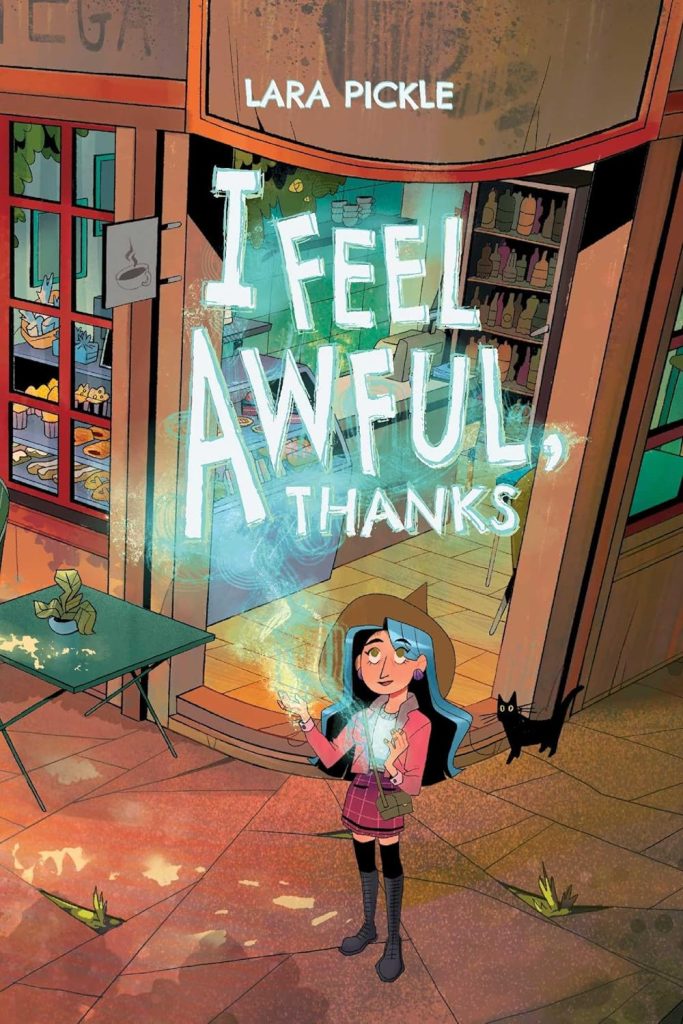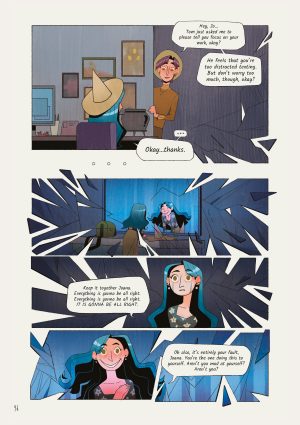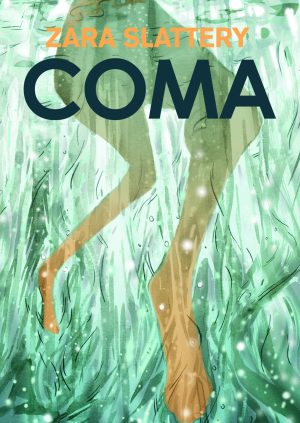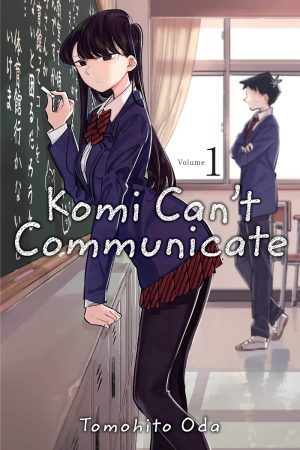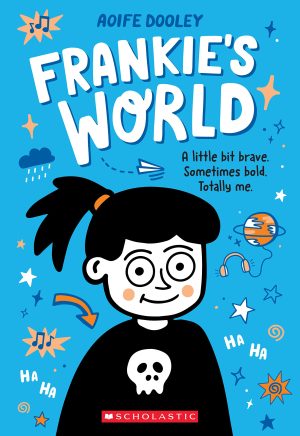Review by Frank Plowright
Joana has moved to London for a position with WitchCo., a prestigious company. For her it’s a dream come true, and she mentions while magic is a naturally exploited force, it seems much more glamorous in London. She’s working with a team attempting to concoct a potion enabling human communication with animals.
Lara Pickle quickly establishes Joana as a likeable central character. She’s almost overwhelmed by her new circumstances, yet maintains a positive attitude when it comes to making new friends and sorting out somewhere to live. It’s all attractively supplied in friendly cartoon form breaking down the story efficiently and everyone wearing pointy witches’ hats as a matter of course is a nice touch, but the digital backgrounds are sparse. If Joana’s so pleased to be in London and considers it glamorous, shouldn’t we be seeing why?
There’s a further, bigger problem. Fair enough if producing a Bridget Jones style drama is the intention, but if that’s the case, why set it in a magical world? And if it’s to be set in a magical world, shouldn’t we be seeing some actual magic? Discounting the possibility of Joana’s nightmares being of magical origin, it’s not until page 73 that an umbrella is manifested from thin air, meaning the first actual magic seen occurs a third of the way through.
It’s actually a magical moment in more ways than one as Joana simultaneously finds a boyfriend. However, that’s also a turning point edging toward the major issue I Feel Awful, Thanks raises. The problems are shown to be piling up for Joana, who has a demandingly passive/aggressive flatmate, conflicts about ethics with her team manager, and an internal lack of confidence. Supportive friends are a help, but avoidable misunderstandings occur, many of them stress-related.
The idea of magic is redundant window dressing, but also distracting from what Pickle really wants to address, which is what the pressures of modern life can lead to without intervention. It’s stressed that it’s perfectly okay to ask for help, true friends will stick by you, and seeing a therapist can also benefit people. Pickle either has personal experience, or has researched extensively as common sense abounds, information that may be obvious standing from the outside, but not so obvious in a society where pressure is piled on people to cope. The magic also finally has a purpose during a visually inventive sequence illustrating emotions.
It would be nice if solutions to the real world problems Pickle explores were so positively resolved, whereas the depressing reality is that whistleblowers are so often targetted by companies rather than the people they’re reporting for unacceptable behaviour. On the other hand, this is fiction designed as educational and positive reinforcement, and after a slow start it hits the target points efficiently and sympathetically for a young adult readership.
